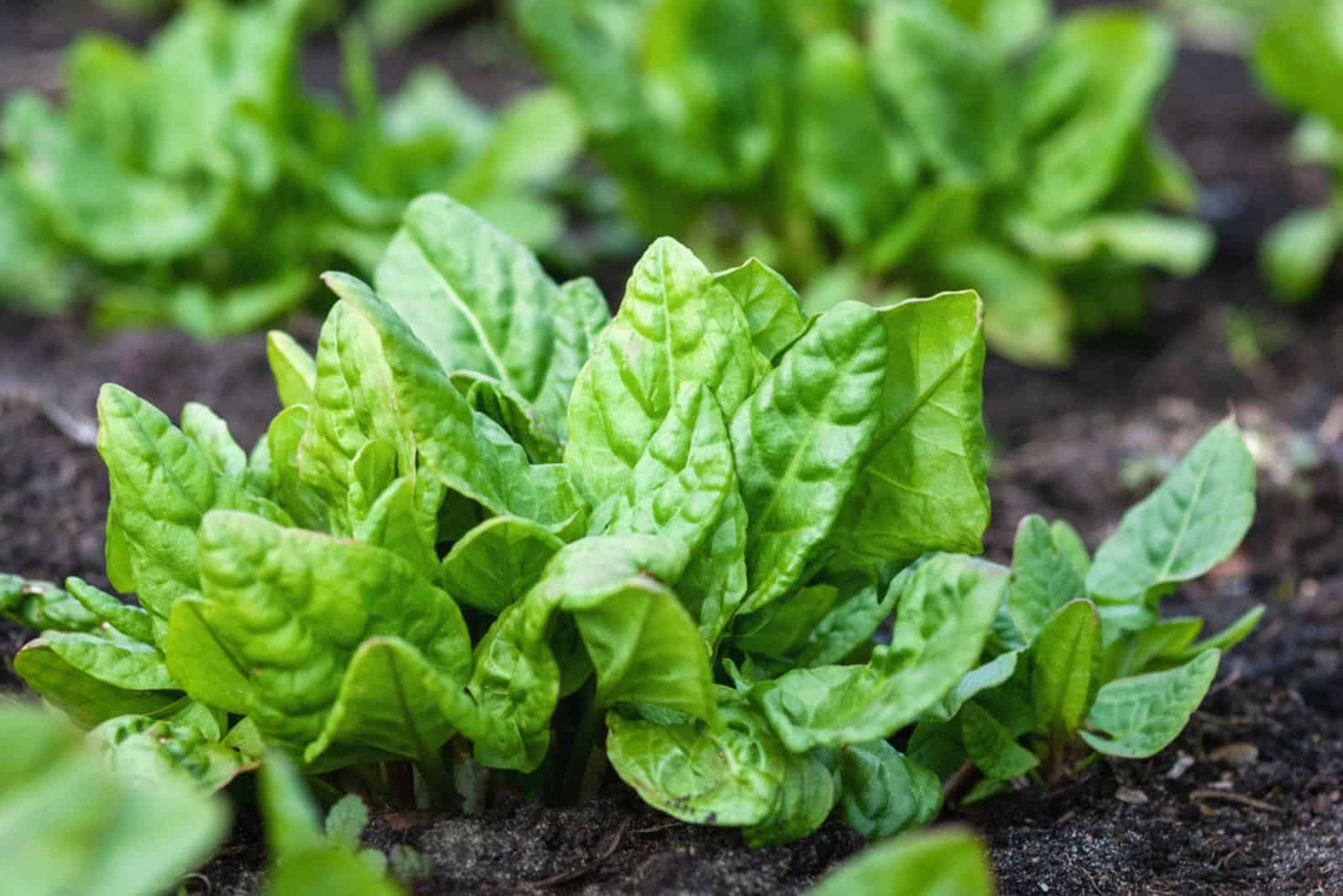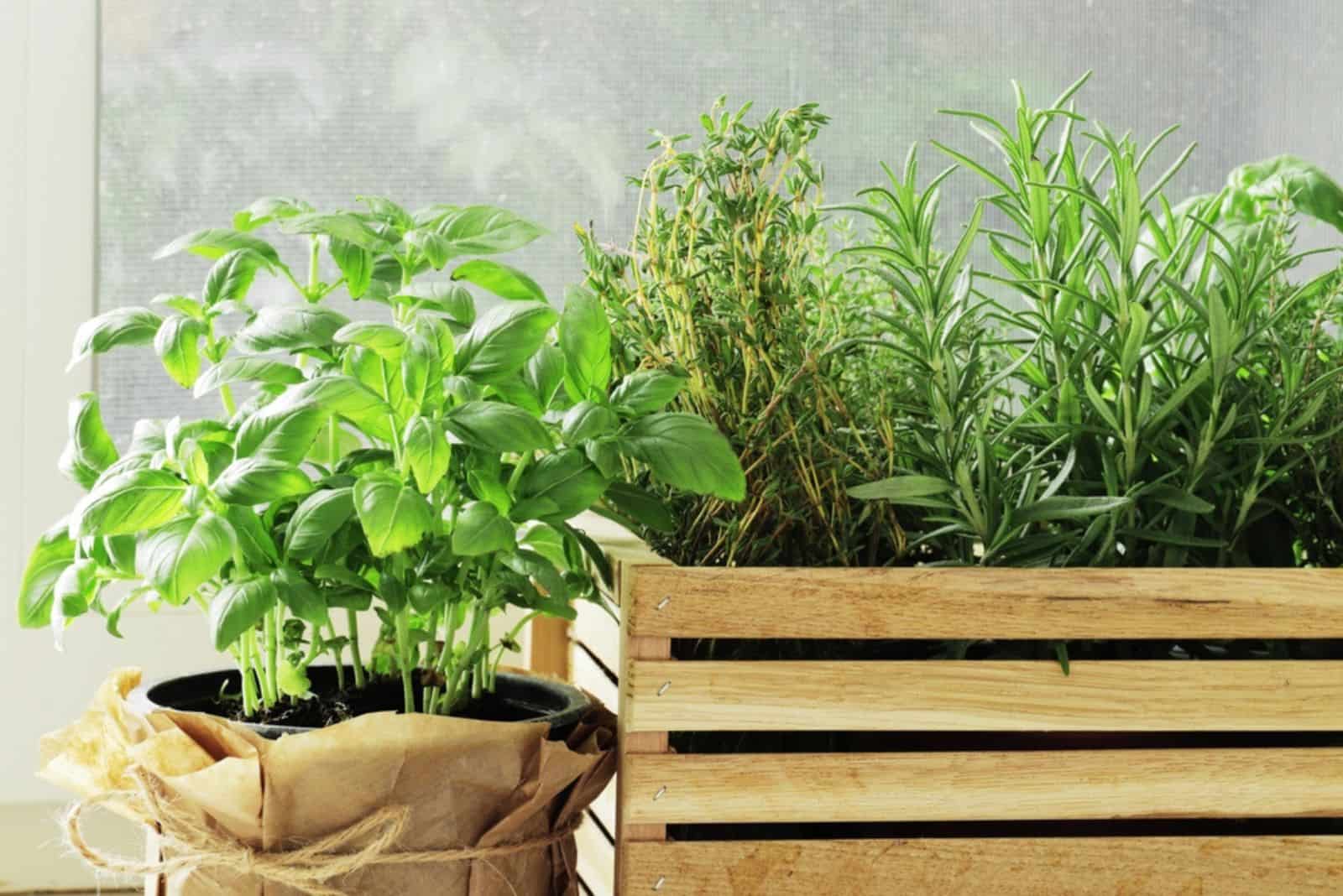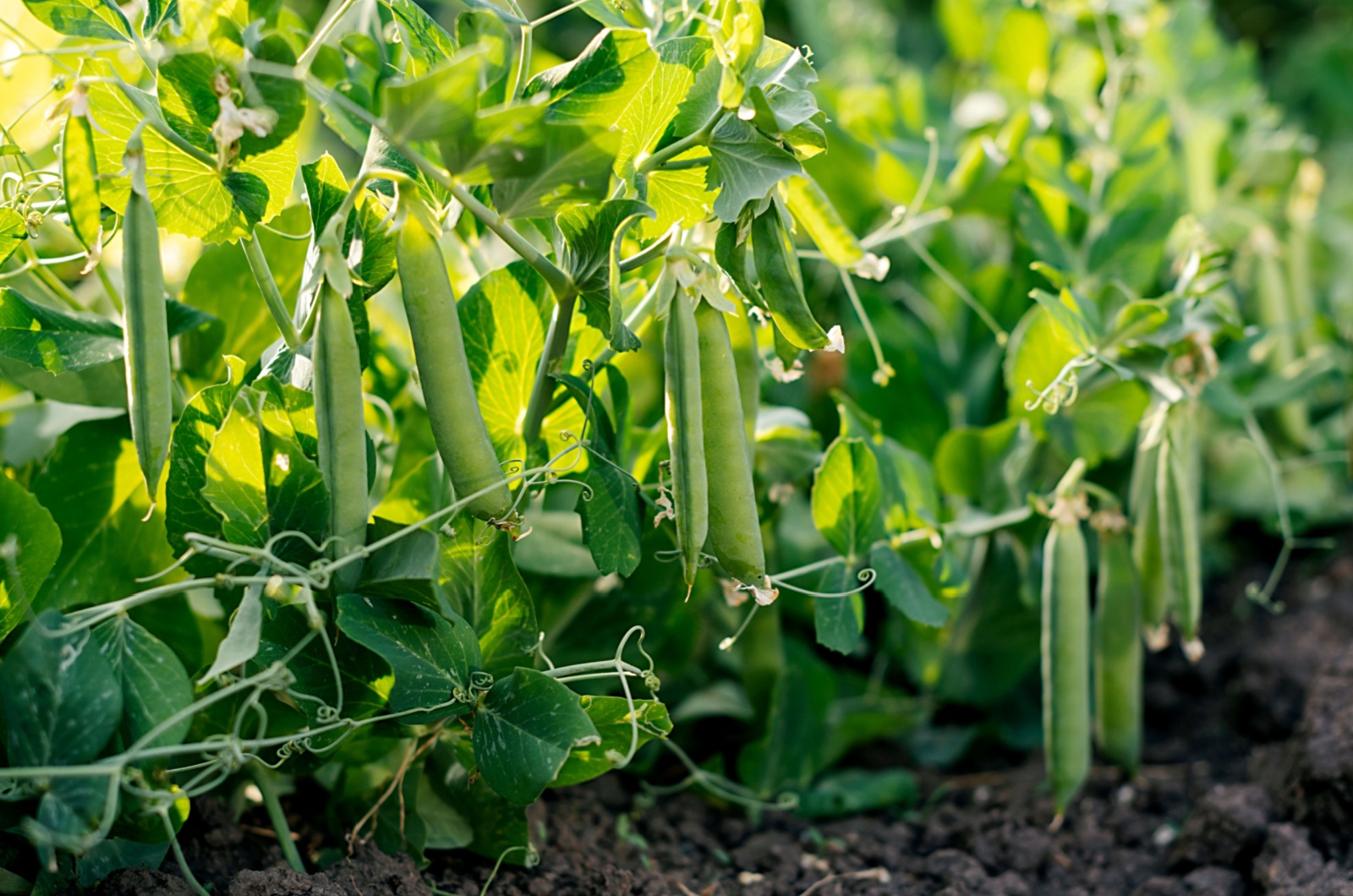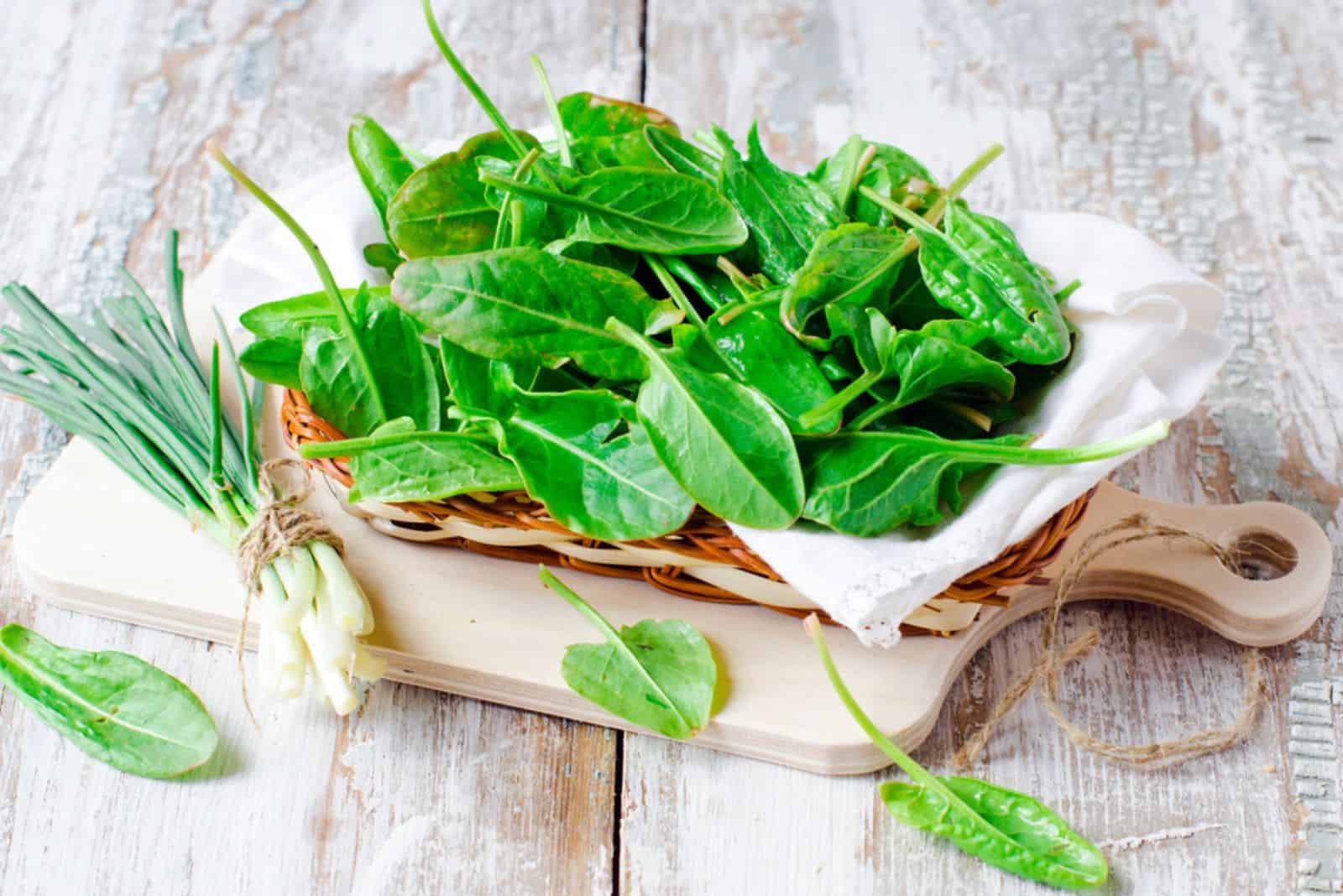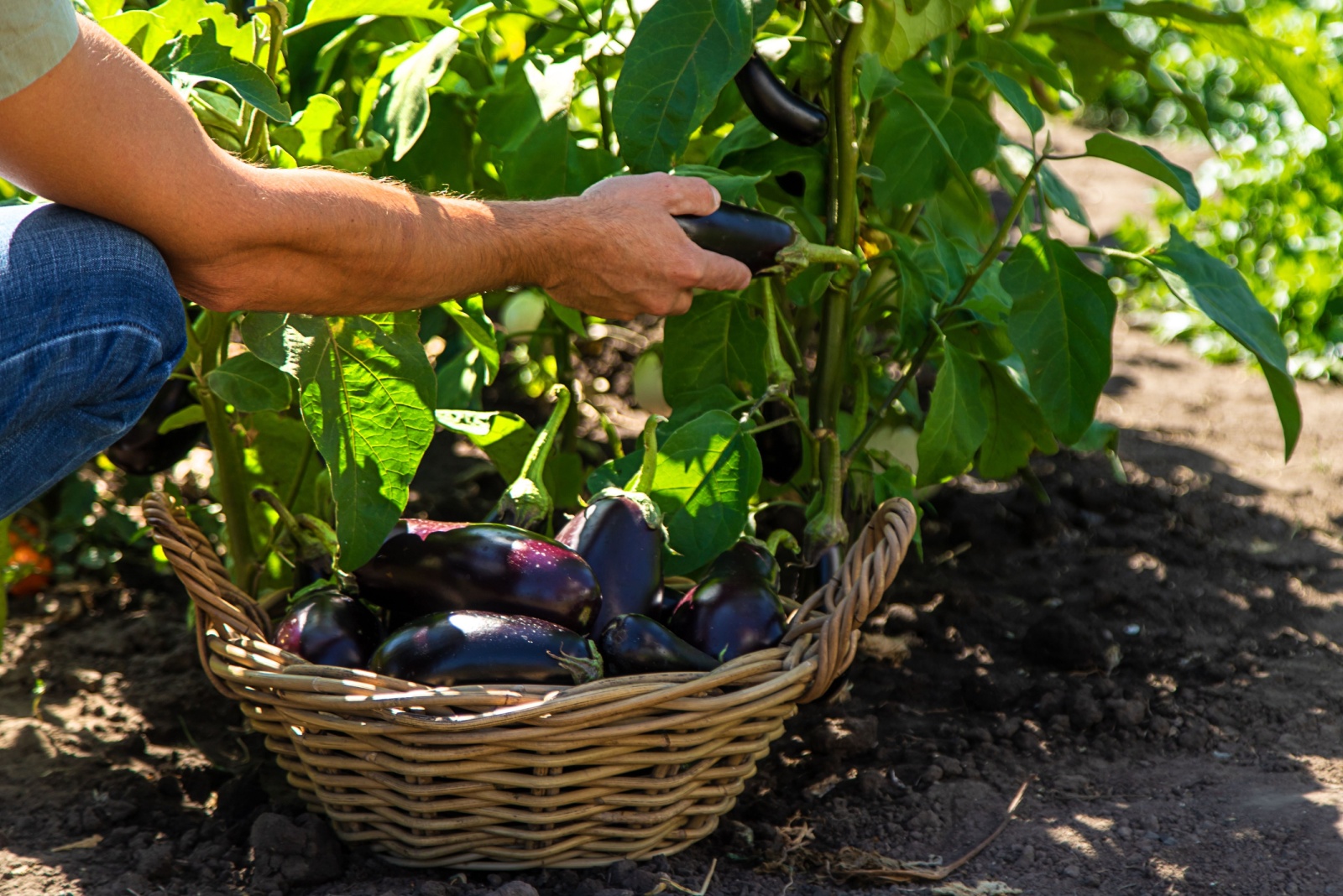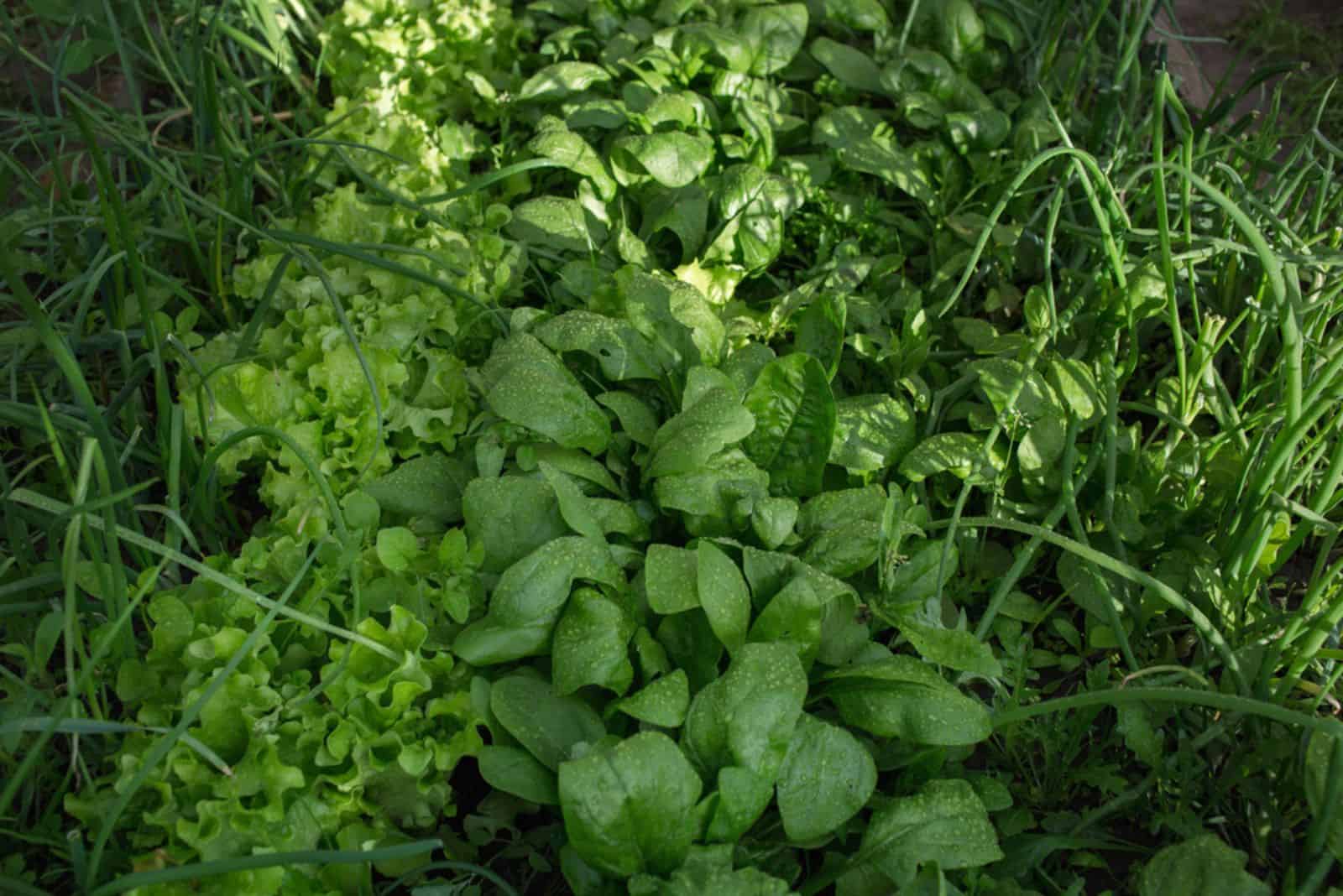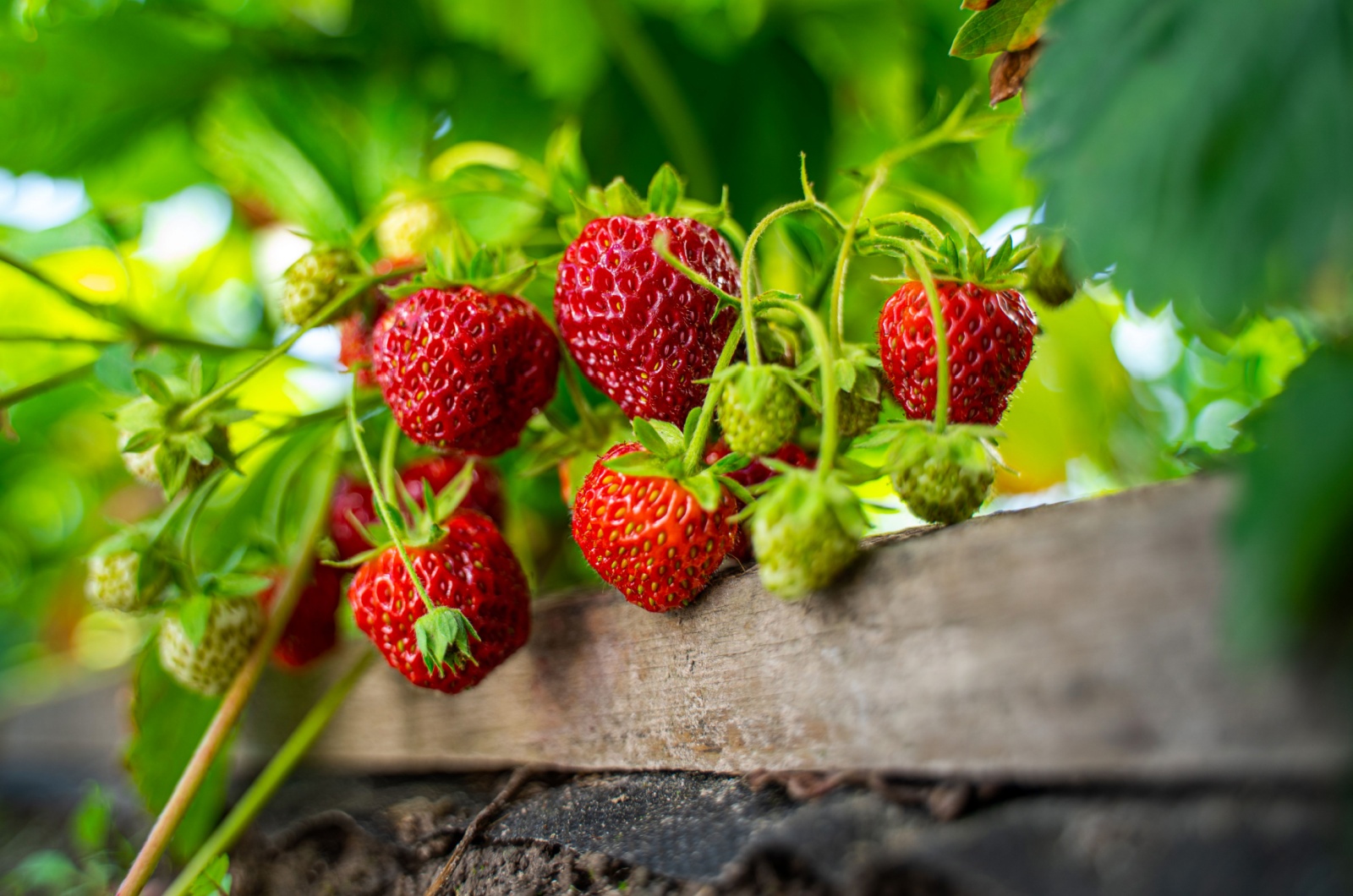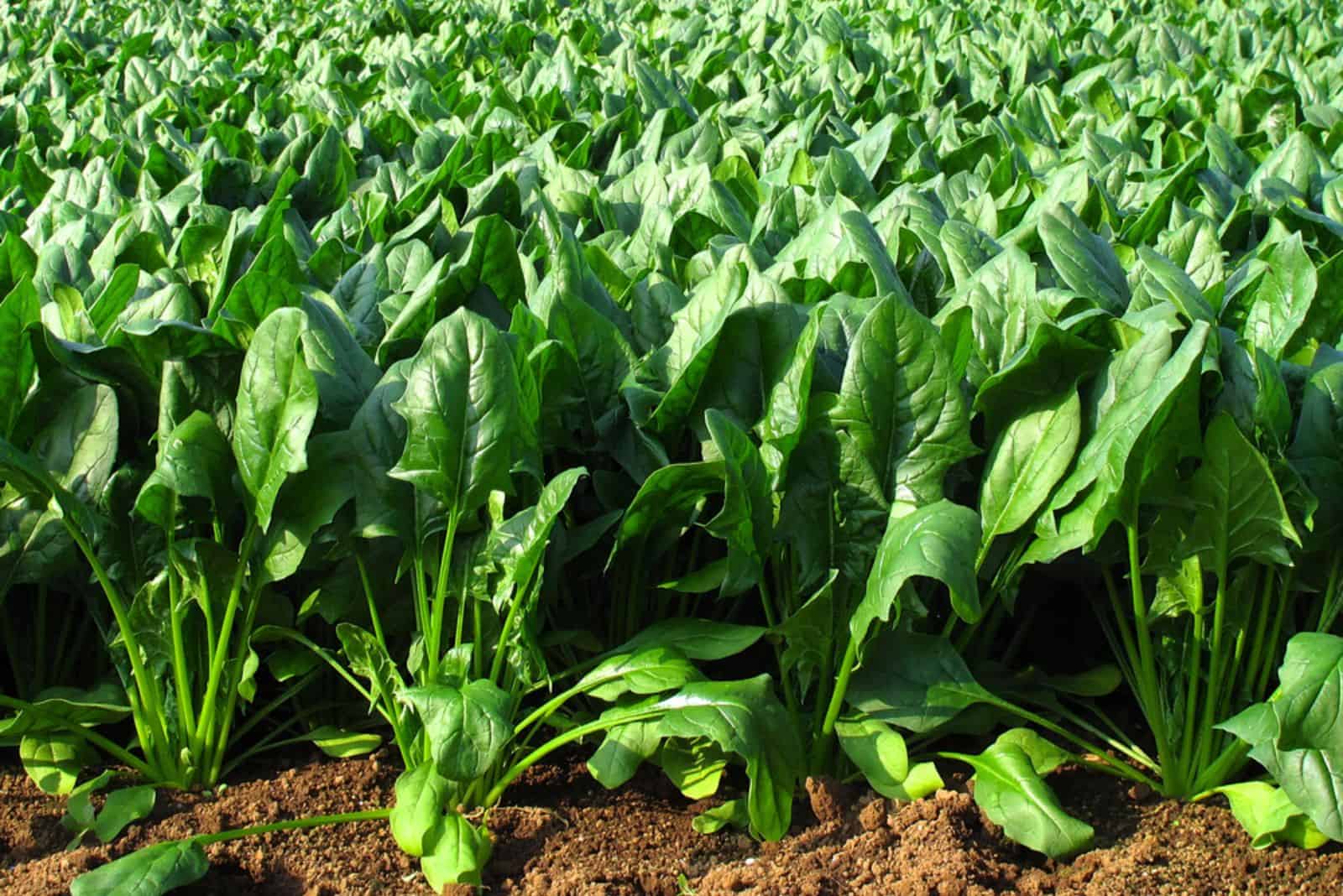Spinach is one of those veggies that you either love or hate, there’s nothing in between! One thing is for certain, though, this is one of the healthiest veggies out there. It’s also a favorite of many gardeners because it matures really quickly.
There’s one simple trick to thriving and healthy spinach: companion planting. The key lies in finding the perfect plants that will enhance spinach growth, repel pests, and attract beneficial insects to your garden.
If this is your first time hearing about this, don’t worry, I’ve got you covered.
These are the 6 best companion plants for spinach to help you get a bountiful harvest!!
1. Herbs
I often discuss the best and worst things about growing plants with my fellow gardeners, and they all agree the worst thing is pests.
If you’re worried about pests destroying your spinach harvest, herbs are here to save the day!
Parsley, oregano, cilantro, and dill are perfect companions for this leafy veggie.
Their strong fragrance is responsible for the pest-repellent features.
All these herbs are very efficient at fighting aphids, which pose a big threat to spinach plants. Another excellent thing is that these herbs will attract beneficial insects to your garden, so it’s a win-win situation!
Each of these herbs has special superpowers. For instance, cilantro will attract lacewings and ladybugs, while oregano will keep wildlife at bay.
Remember that dill, parsley, and oregano are self-seeding plants, which makes their maintenance easier.
2. Peas
Peas are another excellent companion for spinach. These plants have similar growing requirements: both thrive in lower temperatures and perform best in fertile soil types.
Peas will boost nitrogen levels in the soil. Since spinach loves nitrogen, these two will get along perfectly.
But the story doesn’t end here. Another benefit of this partnership is that peas will filter the sunlight and provide well-needed shade for your spinach.
Bolting becomes a big problem when temperatures are too high. It will change the taste of your spinach and make it bitter. Additionally, it will enhance the seed production stage, which isn’t good at this point.
Peas will mature into tall plants and protect your spinach from the heat by providing some shade.
3. Garlic
Growing garlic indoors isn’t hard and it’s even easier to grow it outdoors. If you’re a beginner grower, garlic is an excellent choice, especially if you also grow spinach.
If there was a contest for the most efficient plant to repel pests, garlic would definitely be the winner. Pests hate its strong fragrance so your spinach will grow uninterrupted if planted near garlic.
Your garden will be free of spider mites, aphids, and beetles, which is beneficial for all plants, not only spinach.
Remember that you can use this veggie to make a pest-repellent spray, so if you grow spinach indoors or have other houseplants, you should definitely use this cost-effective method.
4. Eggplant
One of the essential things when using the companion planting technique is choosing plants that won’t compete with each other for nutrients.
This is one of the main reasons why eggplants and spinach get along well.
Eggplants are tall and, similarly to peas, provide shade for your spinach. As a result, it will postpone bolting.
5. Lettuce
Gardeners frequently plant lettuce near spinach. The main reason is the similar growth pattern of both plants.
You’ll get a better yield of both spinach and lettuce if you plant them close to one another than you would if they were planted alone.
Additionally, these plants form a ground cover when they mature, keeping the soil cool. This is another way to prevent bolting, which causes spinach and lettuce to taste bitter.
6. Strawberries
Is there anything better than fresh strawberries harvested right from your own garden? To make things even better, you can grow them near your spinach and they’ll both thrive.
The growing requirements of strawberries are almost the same as those of spinach, so they won’t compete for nutrients in the soil.
The roots of these two plants penetrate at different depths in the soil, and strawberry roots won’t go as deep as spinach roots. Therefore, the roots can spread uninterrupted and both plants will flourish.
Another benefit of strawberries is that they’ll keep the soil cool and protect the spinach from heat.
Spinach isn’t a plant that takes and gives nothing in return; it releases saponin (1), which helps strawberries fight different diseases.
Help Your Spinach Find Some Friends
Does your spinach need friends? Yes! It will benefit from companion planting in a few different ways. This technique will help you repel pests, provide some shade, and boost the nutrient levels in the soil.
These companion plants will help you maintain healthy and happy spinach, and you’ll get the best harvest so far!
Until next time.
References
1. Zaynab, M., Sharif, Y., Abbas, S., Afzal, M. Z., Qasim, M., Khalofah, A., Ansari, M. J., Khan, K. A., Tao, L., & Li, S. (2021). Saponin toxicity as key player in plant defense against pathogens. Toxicon

